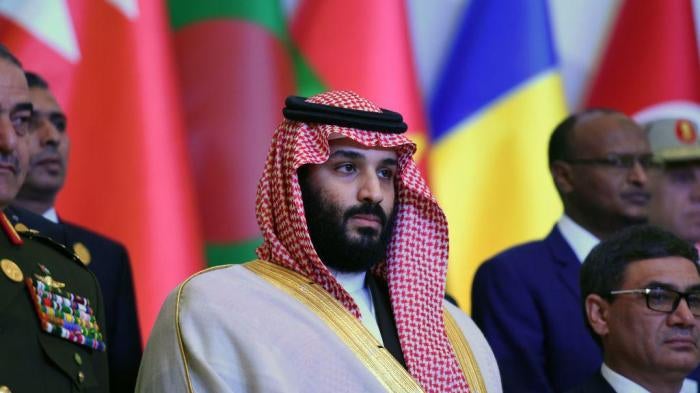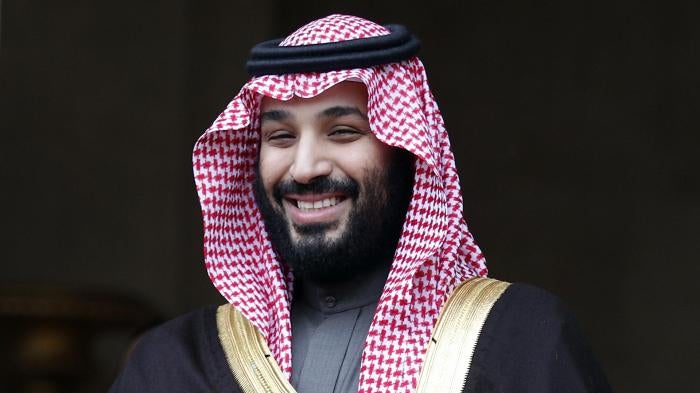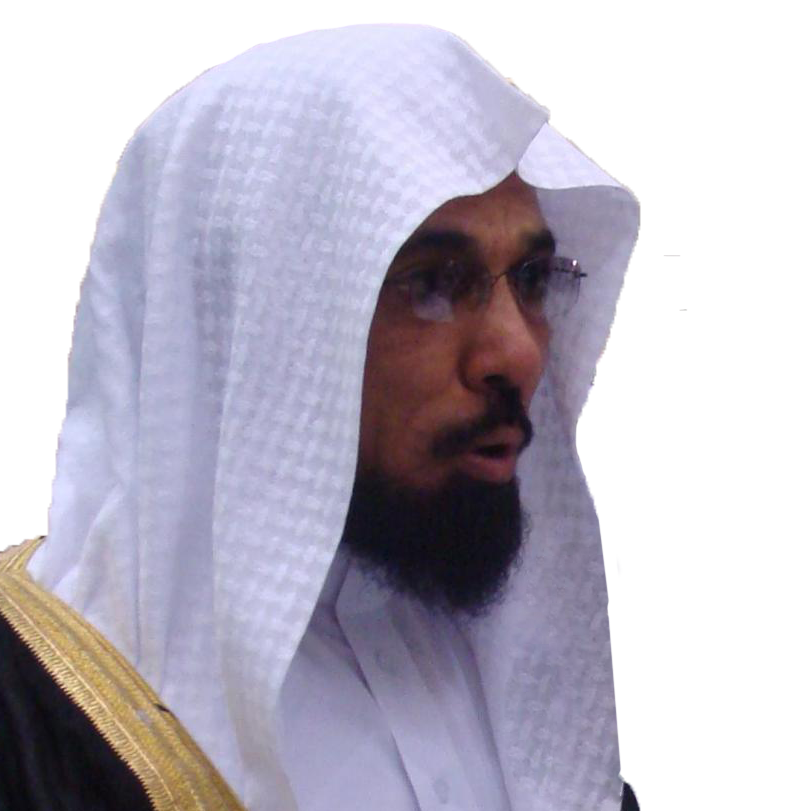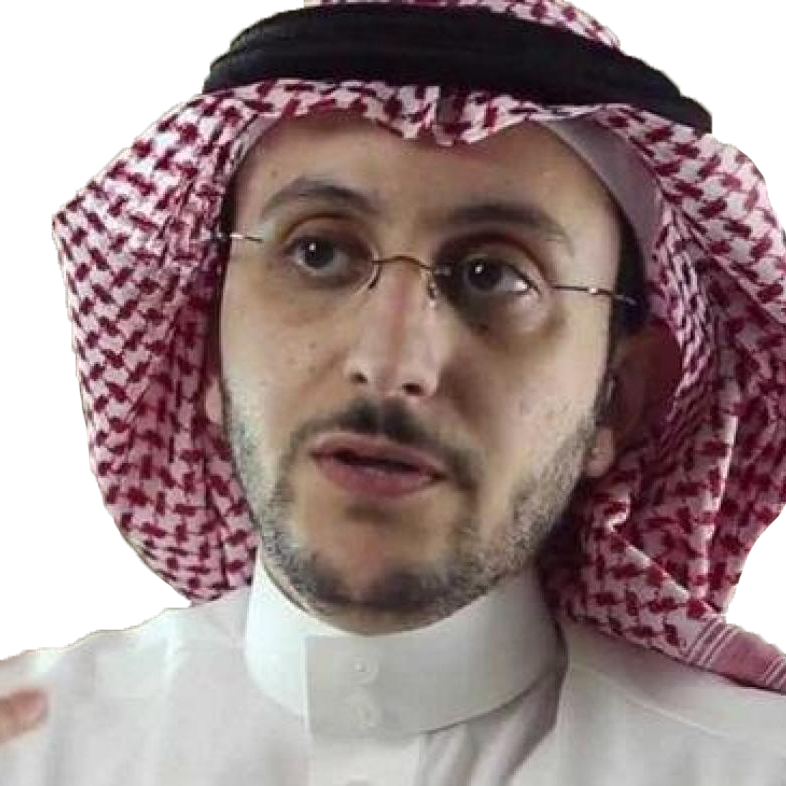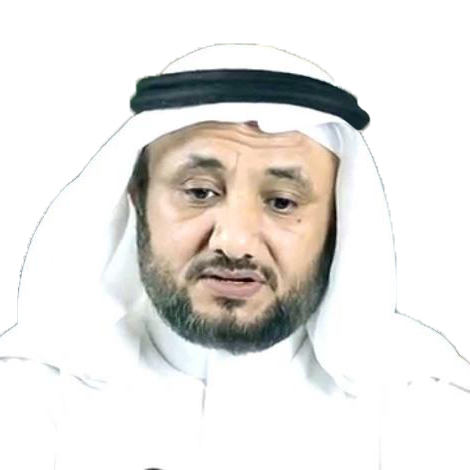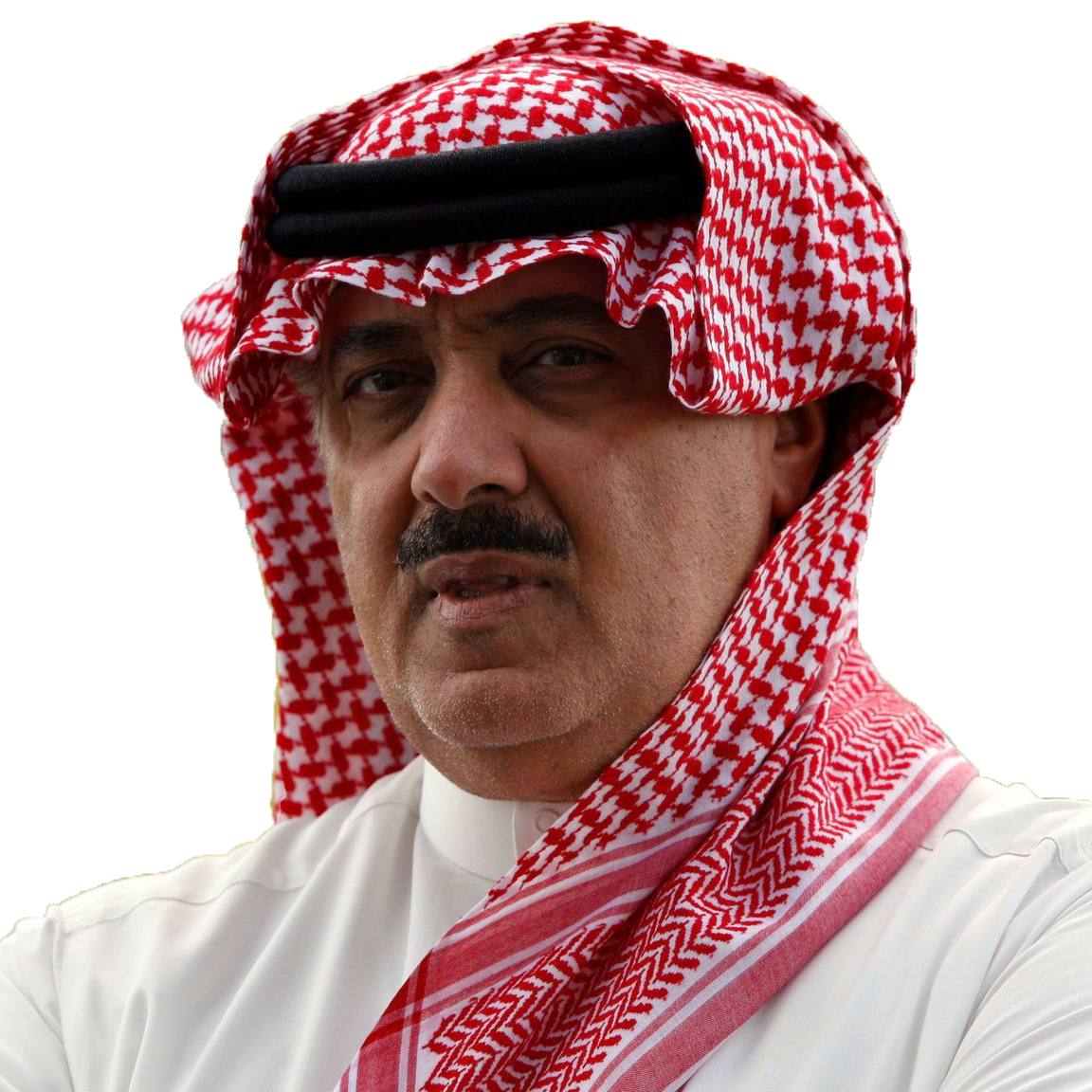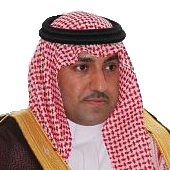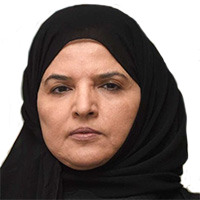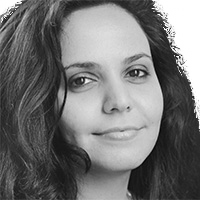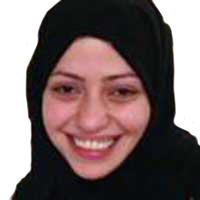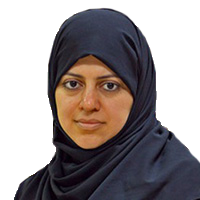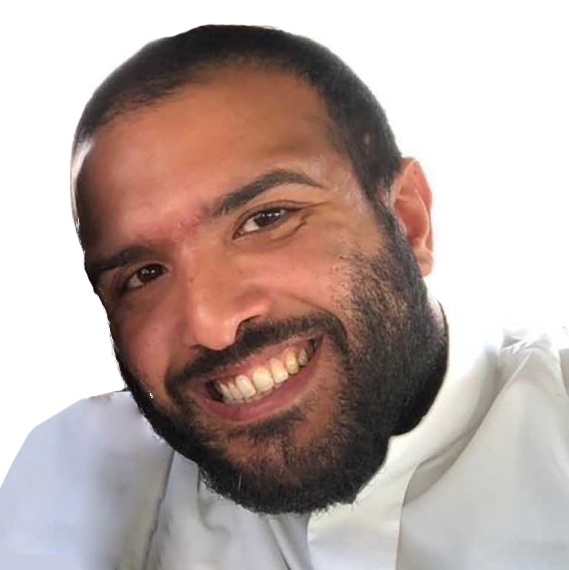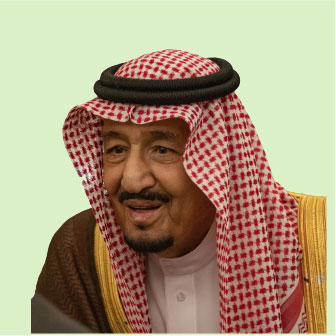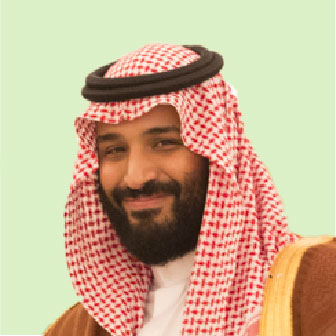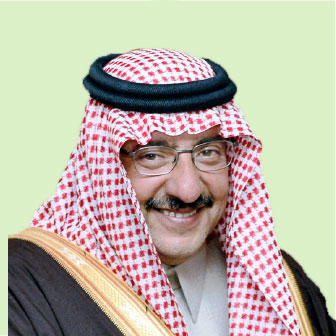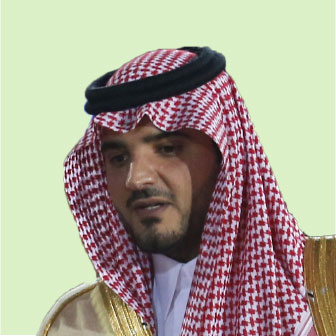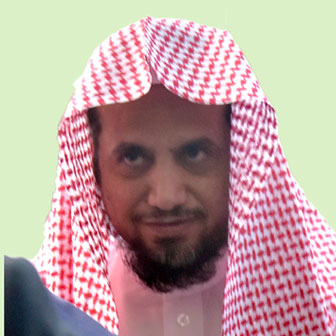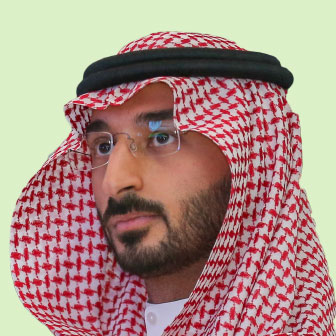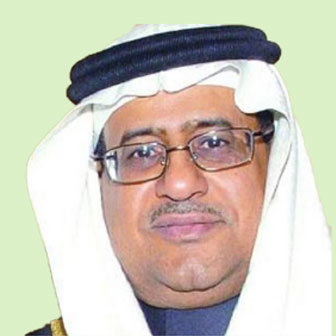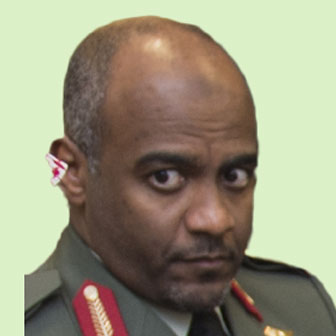Summary
“With young Crown Prince Mohammed bin Salman’s rise to power, he promised an embrace of social and economic reform. He spoke of making our country more open and tolerant and promised that he would address the things that hold back our progress, such as the ban on women driving. But all I see now is the recent wave of arrests.”
-Jamal Khashoggi, 2017
On January 23, 2015, Saudi Arabia’s 90-year-old King Abdullah bin Abdulaziz Al Saud died following a protracted illness. The country faced a deteriorating economy that was overly reliant on high oil prices and unable to meet the employment and livelihood demands of Saudi Arabia’s growing youth population. King Abdullah’s successor, Salman bin Abdulaziz, a half-brother, immediately set out to address the country’s economic plight, appointing his then 29-year-old son Mohammed as the head of the newly established Council of Economic and Development Affairs and the Minister of Defense.
Mohammed bin Salman (known by his initials MBS), a relatively unknown and junior prince prior to his father’s accession to the throne, quickly became the face of Saudi Arabia’s efforts to reform the country’s economy. In April 2016 he launched Vision 2030, an ambitious government road map for economic and developmental growth that aims to reduce the country’s dependence on oil.
The following year, in June 2017, King Salman elevated his son to crown prince, making him next in line to the Saudi throne and de facto day-to-day ruler of the country. Positive changes for women and youth, combined with a major push for foreign direct investment into the world’s largest oil producing country and lavishly funded public relations efforts helped to bolster a positive image for the crown prince on the international political scene. During visits to the United Kingdom and United States in March 2018, Prince Mohammed was lauded by officials, businesspeople, and celebrities alike.
Behind the glamor and pomp of Prince Mohammed’s newfound fame abroad and advancements for Saudi women and youth, however, lay a darker reality, as the Saudi authorities moved to sideline anyone in Saudi Arabia who could stand in the way of his political ascension. In the summer of 2017, around the time of his promotion to crown prince, authorities purged former security and intelligence officials and quietly reorganized the country’s prosecution service and security apparatus, the primary tools of Saudi repression, and placed them directly under the royal court’s oversight. With the security apparatus completely under royal court control, the authorities then launched a series of arrest campaigns, targeting dozens of critics and potential critics of Saudi government policies. These arrest waves targeted prominent clerics, public intellectuals, academics, and human rights activists in September 2017, leading businesspeople and royal family members accused of corruption in November 2017, and the country’s most prominent women’s rights advocates beginning in May 2018. The arrests waves were often accompanied by defamation and slander of those arrested in the country’s progovernment media.
Detaining citizens for peaceful criticism of the government’s policies or human rights advocacy is not a new phenomenon in Saudi Arabia, but what has made the post-2017 arrest waves notable and different, however, is the sheer number and range of individuals targeted over a short period of time as well as the introduction of new repressive practices not seen under previous Saudi leadership.
These new tactics include cases of holding detainees at unofficial places of detention, such as the detention of so-called corruption detainees at the five-star Ritz-Carlton hotel in Riyadh from late 2017 into early 2018, as well as the detention of prominent women’s rights activists at a “hotel” or “guesthouse” during the summer of 2018. While in unofficial detention centers, allegations have emerged that torture and mistreatment of detainees were rampant. For example, in March 12, 2018 the New York Times reported that 17 Ritz-Carlton detainees required hospitalization for physical abuse, including one man who later died in custody. In addition, in late 2018 Human Rights Watch received credible information from informed sources that authorities had tortured four prominent Saudi women activists while in an unofficial detention center, including by administering electric shocks, whipping the women on their thighs, forcible hugging and kissing, and groping.
Abusive practices also have included long-term arbitrary detention – over two years – without charge, trial, or any clear legal process. For example, some of the so-called corruption detainees arrested in late 2017 remain at this writing in detention without charge or trial, including Turki bin Abdullah, the son of the late King Abdullah and former governor of Riyadh, Adel al-Fakih, a former minister, and Bakr Binladin, a construction mogul.
Authorities also targeted family members of prominent Saudi dissidents and activists, including by imposing arbitrary travel bans. Omar Abdulaziz, a Canada-based Saudi dissident, said that Saudi authorities detained his two brothers in August 2018 in an effort to silence his online activism.
Other abusive practices have included extorting financial assets of detainees in exchange for their release outside of any legal process and seeking the death penalty against detainees for acts that do not resemble recognizable crimes. For example, Saudi prosecutors are currently seeking the death penalty against reformist religious thinker Hassan Farhan al-Maliki on vague charges relating to the expression of his peaceful religious ideas, as well as against the widely known cleric Salman al-Awda on charges stemming solely from his peaceful political statements, associations, and positions. Both men were detained during the September 2017 crackdown.
Saudi Arabia has reportedly used commercially available surveillance technologies to hack into the online accounts of government critics and dissidents. Citizen Lab, an academic research center based in Canada, concluded with “high confidence” that in 2018 a Saudi activist’s mobile phone was infected with spyware, and other activists have announced that they were targeted with the same spyware.
Mohammed bin Salman, who was appointed defense minister in January 2015, has also ultimate responsibility for Saudi Arabia’s abusive tactics in its four-year-old military intervention in Yemen. The Saudi-led coalition which has been conducting military operations against Houthi forces in Yemen, has imposed an aerial and naval blockade and restricted the flow of life-saving goods, exacerbating an existing humanitarian crisis. Saudi-led coalition aircraft have carried out apparently unlawful attacks that hit Yemeni markets, hospitals, schools, funerals, and even a school bus filled with children.
The repressive side of MBS’s domestic record, however, was not given the international scrutiny it deserved until October 2018, when the violent murder of Saudi journalist and Washington Post columnist Jamal Khashoggi at Saudi Arabia’s Istanbul consulate shocked global opinion and led to a broader examination of the human rights situation in Saudi Arabia.
There was massive global media coverage of Khashoggi’s death, especially as it became clear that Saudi state agents perpetrated his murder. This was accompanied by unprecedented condemnation of Saudi abuses. Dozens of business leaders and officials pulled out of Saudi Arabia’s Future Investment Initiative Forum, otherwise known as “Davos in the desert,” which took place in Riyadh in late October 2018. On November 15, 2018, the United States imposed sanctions, including travel bans and asset freezes, on 17 Saudis in connection with their alleged role in the murder.
Countries and world leaders also called attention to the continuing arbitrary detention of public dissidents and activists, particularly detained women’s rights advocates. On February 14, 2019, for example, the European Parliament adopted a resolution calling on Saudi Arabia to immediately and unconditionally release “women’s rights defenders and all human rights defenders, lawyers, journalists and other prisoners of conscience detained and sentenced merely for exercising their right to freedom of expression and for their peaceful human rights work.” The resolution also called for an EU-wide ban on export of surveillance systems, reiterated that arms sales to Saudi Arabia contravene the EU’s common position on arms exports, and called for “restricted measures against Saudi Arabia in response to breaches of human rights, including asset freezes and visa bans.”
On March 7, 2019, 36 countries at the United Nations Human Rights Council issued the first ever joint statement on Saudi human rights abuses, calling on Saudi Arabia “to release all individuals, including Loujain al-Hathloul, Eman al-Nafjan, Aziza al-Yousef, Nassima al-Sadah, Samar Badawi, Nouf Abdelaziz, Hatoon al-Fassi, Mohammed AlBajadi, Amal Al-Harbi, and Shadan al-Anezi, detained for exercising their fundamental freedoms.”
In February 2019, a bipartisan group of US Congressional representatives led by Congresswoman Lois Frankel issued a resolution calling on Saudi Arabia to immediately and unconditionally release jailed Saudi women’s rights activists and hold those responsible for abuses accountable. A bipartisan group of US Senators led by Senator Marco Rubio introduced a similar resolution in the US Senate. Other congressional bills and resolutions pushing for Saudi government accountability for the Khashoggi murder remain under consideration at the time of writing.
Despite this global condemnation of Saudi Arabia’s escalating domestic repression, Crown Prince Mohammed bin Salman has continued to enjoy the unwavering support of several key world leaders, including US President Donald Trump. On November 6, 2017, following Saudi Arabia’s “corruption” arrests, Trump tweeted his support, writing, “I have great confidence in King Salman and the Crown Prince of Saudi Arabia, they know exactly what they are doing.... ...Some of those they are harshly treating have been “milking” their country for years!” On November 20, 2018, during a period of widespread criticism over the Khashoggi murder, the Trump administration issued a statement that began with the phrase “[t]he world a dangerous place!” and referred to Jamal Khashoggi as an “enemy of the state” and member of the Muslim Brotherhood. The statement went on to argue that the US should continue its arms sales to Saudi Arabia because cancelling them would mean that “Russia and China would be the enormous beneficiaries.”
In mid-2019, while dozens of dissidents remained on trial and in prison, and with no clear accountability for allegations of torture of detainees or the murder of Khashoggi, Saudi authorities resumed efforts to improve the country’s reputation and shift the international narrative away from the Khashoggi murder, in part by announcing major women’s rights reforms. In June 2018, just weeks after the detentions of the country’s leading women’s rights advocates, Saudi authorities lifted the ban on women driving. In late July 2019, Saudi Arabia announced that Saudi women over 21 will be able to obtain passports without the approval of a male relative, register births of their children, and benefit from new protections against employment discrimination. In early August, Saudi Arabia announced further changes to regulations allowing women over 21 to travel abroad freely without permission of a male guardian.
Despite major advances for women, ongoing arbitrary and abusive practices against dissidents and activists since mid-2017 and total lack of accountability demonstrate that the rule of law in Saudi Arabia remains weak and can be undermined at will by the country’s political leadership. It remains a criminal offense under the Saudi Arabia’s 2017 counterterrorism law to criticize the king or crown prince “in a manner that brings religion or justice into disrepute” punishable by five to ten years in prison.
In order to demonstrate that Saudi Arabia is truly reforming, King Salman and Crown Prince Mohammed bin Salman should introduce new reforms to ensure that Saudi citizens enjoy basic human rights, including freedoms of expression, association, and assembly, as well as an independent judiciary and due process of law. The authorities can signal this commitment immediately by releasing from detention all detainees detained arbitrarily or on charges based solely on their peaceful ideas or expression, dropping all charges that do not resemble recognizable crimes against dissidents on trial, and providing accountability for perpetrators of abuses such as torture or arbitrary punishments.
Recommendations
To the Government of Saudi Arabia
- Immediately release all prisoners held solely for their peaceful practice of their rights to free expression and association, including prisoners convicted of alleged crimes, prisoners currently on trial, and prisoners held arbitrarily;
- Investigate allegations of torture and ill-treatment by an independent body and ensure that perpetrators are held accountable and survivors are provided with redress;
- Allow international monitors to enter the country and grant them unfettered access to detainees;
- Publicize all information about the ongoing trial of 11 individuals accused of the murder of journalist Jamal Khashoggi and implement recommendations by the United Nations Special Rapporteur on extrajudicial, summary, or arbitrary killings in her June 2019 report;
- Halt all acts of intimidation, harassment, and smear campaigns against rights activists and their family members, including those carried out by individuals invested with or claiming religious authority;
- Halt the imposition of arbitrary travel bans without justification or notification and enact changes to the Travel Documents Law ensuring that travel bans handed down by the Ministry of Interior can be challenged in court;
- Promulgate a penal code that clearly defines acts that give rise to criminal responsibility in line with international human rights standards. The penal code should also criminalize use of torture and cruel, inhuman, and degrading treatment or punishment;
- Rescind article 6 of the Information Crimes Law of 2007, which is regularly used to imprison dissidents for peaceful criticism;
- Repeal vague provisions of the 2017 Law on Crimes of Terrorism and its Financing used to unlawfully limit freedom of expression, including article 30, as well as provisions that allow for indefinite detention of suspects and temporary incommunicado detention;
- Permit detainees to challenge the lawfulness of their detention before a court, ensure all detainees are brought promptly before a court to review the legality and necessity of their detention, to guarantee access to legal counsel in a timely manner, and to make statements obtained under duress or torture inadmissible in court;
- Promptly, and prior to interrogation, allow a detainee to communicate with legal counsel of his or her choice, and inform him or her of this right at police stations, Mabahith offices, and other custodial settings of law enforcement agencies in compliance with the Law of Criminal Procedure;
- Videotape all interrogations and promptly make the full content of those tapes available to the detainee and his or her counsel;
- Halt practices requiring a detainee to pledge to abstain from certain acts or perform certain acts as a condition of release, unless such a pledge is part of a formal, judicially sanctioned agreement and does not in any way inhibit the exercise of the detainee’s human rights.
To Saudi Arabia’s Key Allies
- Sanction Saudi officials at the highest levels who played a role in the murder of Jamal Khashoggi or committed acts of torture;
- Restrict export licenses of surveillance technologies to Saudi Arabia.
- Heavily scrutinize weapons transfers that could be used to limit basic rights such as freedom of assembly;
- Advocate for the release of dissidents and activists detained solely for peaceful criticism of Saudi authorities.
To Technology Companies
- Halt sales of surveillance technologies to Saudi Arabia and halt existing contracts providing for ongoing training and technical support to ensure that these activities do not contribute to human rights violations;
- Provide transparency around past sales of surveillance technologies to Saudi Arabia;
- Investigate whether surveillance technologies sold to Saudi Arabia were used to spy on dissidents at home and abroad in violation of their terms of service and applicable human rights standards;
- Advocate for the release of dissidents and activists detained solely for peaceful criticism of Saudi authorities.
Methodology
Saudi authorities have not granted Human Rights Watch access to freely conduct in-country research since a research mission to the country in 2006. Human Rights Watch staff have visited Saudi Arabia six times since 2006, but most of these visits remained tightly circumscribed.
The report is based on telephone interviews with Saudi activists and dissidents since 2017, government statements, and court documents, as well as exhaustive reviews of Saudi local media outlets and social media. To protect those we interviewed from retaliation, we have withheld names or used pseudonyms for interviewees, unless they indicated a willingness to be named. Researchers informed all interviewees of the purpose of the interview and the ways in which the data would be used, and none of the interviewees received financial or other incentives for speaking with Human Rights Watch.
Human Rights Watch compiled lists of detainees in Chapter IV from available evidence including interviews with Saudi human rights activists, official statements, and media reports. The lists are not exhaustive. Unless otherwise indicated, the latest available information indicates that individuals listed remain in detention.
On October 21, Human Rights Watch sent a letter to the Saudi government outlining the general conclusions of our research. As of early November, Saudi authorities had not replied to Human Rights Watch.
I. Saudi Arabia Under New Leadership
Since the establishment of the modern-day Kingdom of Saudi Arabia in 1932 the country has been ruled as an absolute monarchy, first by its founder Abdulaziz Al Saud and then, following his death, by a succession of his sons. While maintaining absolute power over decision making, Saudi leaders historically exercised power in dialogue with informal yet powerful interest groups which maintained the ability to influence decisions. These groups included the country’s conservative Sunni religious establishment of state-affiliated and independent clerics, other members of the royal family, the security services, and influential members of the Saudi business community.[1]
The emergence of Mohammed bin Salman in early 2015 began to alter the status quo. Authorities moved to systematically curtail the influence of these groups and their ability to dictate decisions. In April 2016, Saudi Arabia’s Council of Ministers removed the powers of arrest from the country’s abusive religious police. In late 2017, as part of a sweeping crackdown on Saudi dissidents, authorities arrested prominent independent clerics critical of government policies.[2] In late 2017, authorities also rounded up tens of prominent members of the royal family, current and former government officials, and members of the business community as a part of a campaign against corruption.[3]
Beyond arrests, following his appointment as crown prince, Mohammed bin Salman and his father also meticulously moved to restructure the country’s traditional tools of repression, the internal security forces and the prosecution service, removing them from the jurisdiction of the interior ministry and placing them directly under the king, giving the royal court sole oversight over the agencies that conduct arrests and prosecutions.[4] Since his appointment as defense minister in 2015, Mohammed bin Salman has maintained control of the Saudi military. In November 2017 King Salman and Mohammed bin Salman removed control of the Saudi National Guard, an independent military force, from the late King Abdullah’s son Mutaib and jailed him for alleged corruption, effectively bringing all branches of the Saudi armed forces under royal court control.[5]
When confronted in an interview with Bloomberg in October 2018 about Saudi Arabia’s mass arrests, Mohammed bin Salman justified them as necessary for enacting reforms in Saudi Arabia, stating:
… I believe that a lot of movements that happen around the world, they happen with a price. So for example if you look at the United States of America, when for example they wanted to free the slaves. What was the price? Civil war. It divided America for a few years. Thousands, tens of thousands of people died to win the freedom for the slaves…. So if there is a small price in that area, it’s better than paying a big debt to do that move…[6]
Consolidation of Power and Restructuring the Security Apparatus
When Salman bin Abdulaziz acceded to the Saudi throne in January 2015, Prince Mohammed, the first son from his third marriage, was a relative unknown. Unlike some of his older brothers, who included Sultan bin Salman, the first Arab and Muslim ever to fly in outer space, or Abdulaziz bin Salman, a major figure in Saudi Arabia’s oil industry, Prince Mohammed did not have a significant public profile prior to 2015 nor had he studied outside the country like many prominent royal family members.[7] Rather, he had quietly served his father, primarily as an advisor to Salman while he was Minister of Defense and governor of Riyadh. According to Karen Elliott House, Prince Mohammed became close to his father by remaining by his side while he grieved the deaths of his eldest and third eldest sons in 2001 and 2002 respectively, both from heart disease.[8]
Mohammed bin Salman burst onto the international arena in January 2015 when his father, immediately after becoming king, appointed him defense minister (Salman’s former position).[9] As defense minister he quickly established himself as less cautious than his predecessors, facilitating the launch of major military operations in Yemen in March 2015 by a coalition of countries. The military campaign aimed to roll back the advances of the Ansar Allah militant group (known as the Houthis), a Zaydi Shia group which had taken over most of Yemen, including the capital Sanaa, and expelled the country’s internationally-recognized government headed by President Abdu Rabbu Mansour Hadi.
When King Salman took the throne, he promoted Mohammed bin Nayef, Mohammed bin Salman’s cousin and former interior minister who successfully led Saudi Arabia’s counter-insurgency efforts after 2004, as deputy crown prince behind Crown Prince Muqrin, who is Mohammed bin Salman’s uncle. Within three months, however, King Salman altered the line of succession, sacking Muqrin and elevating Mohammed bin Nayef to crown prince and Mohammed bin Salman to deputy crown prince.[10]
Between April 2015 and June 2017, the division of power between Mohammed bin Salman and Mohammed bin Nayef was clear, with Mohammed bin Salman in control of the country’s economy and military, and Mohammed bin Nayef in control of domestic security affairs.
On June 17, 2017, however, the first major crack in the fragile arrangement appeared when King Salman issued a royal decree removing Othman al-Muhrij from his position as director of the country’s Public Security Directorate (police), a major agency within the Interior Ministry.[11] The same day, he also issued a royal decree severing the Bureau of Investigation and Prosecution (BIP) from the Interior Ministry and re-establishing it as the Public Prosecution, an “independent” entity reporting directly to the king and headed by a new head prosecution official called the Attorney General. The royal decree stated that the change was “in [accordance] with the rules and principles of many countries of the world,” and based on “the necessity of separation between executive authority in the state and the bureau and its work since it is part of the judicial authority.”[12]
The Saudi prosecution service is a major tool of Saudi repression and has been used to terrorize peaceful Saudi dissidents since 1988 through various means, including harassment, endless summonses for interrogation, arbitrary detention, and prosecution in blatantly unfair trials on spurious charges.[13] These practices accelerated and increased following the 2017 reorganization.
On June 21, within days of removing the prosecution service from Mohammed bin Nayef’s control, King Salman acted decisively by stripping him of all his official positions and appointing his son Mohammed bin Salman crown prince and presumptive future king.[14] To secure his elevation, Mohammed bin Salman reportedly garnered all but 3 votes in the country’s allegiance council, which decides on succession issues and is made up of 34 royal family members who are sons or represent the families of sons of Saudi Arabia’s founding King Abdulaziz.[15]
Citing US intelligence officials, the New York Times reported on June 28, 2017 that Mohammed bin Nayef had not only been deposed but also placed under house arrest at his Jeddah palace and prevented from leaving the country.[16] An informed source told Human Rights Watch that in addition to placing Mohammed bin Nayef under house arrest, authorities also purged many officials loyal to him from the security apparatus, including by detaining two high-level Interior Ministry officials. Another security official close to Mohammed bin Nayef who served as Saudi Arabia’s liaison to western intelligence agencies fled the country.[17] The source said that authorities banned immediate family members of Mohammed bin Nayef and these officials from travel and froze their bank accounts and assets.[18] The sidelining of Mohammed bin Nayef and his loyalists effectively removed the most serious royal challenger to Mohammed bin Salman.
For the remainder of 2017, King Salman and Crown Prince Mohammed moved against other individuals who could potentially curb their power, culminating in the establishment of an anticorruption committee headed by the crown prince which carried out so-called corruption arrests on November 4, 2017, when powerful figures within the royal family and influential Saudis such as Prince Alwaleed bin Talal, a prominent businessman, Abdulaziz bin Fahd, a former cabinet member, Turki bin Abdullah, a former governor of Riyadh, Fahd bin Abdullah, a former defense minister, and Mutaib bin Abdullah, then-Minister of National Guard, and at least nine other princes were detained, stripped of their positions, and forced to hand over financial assets in exchange for their freedom.[19] The so-called corruption arrests appeared to especially target the sons of the late King Abdullah. Some royal detainees, including Turki bin Abdullah, remain in detention without charge at the time of writing.
In order to cement his position as crown prince, beginning in mid-2017 King Salman and Crown Prince Mohammed sought to overhaul the security infrastructure of the state and effectively downgrade the previously powerful role of interior minister.
In addition to placing the prosecution service under the purview of the royal court, King Salman also created a new agency, the Presidency of State Security, which absorbed the intelligence and counterterrorism functions formerly held by the Interior Ministry. The new agency contains the General Directorate of Investigation (known as Mabahith, the notorious domestic security agency) as well as Saudi Arabia’s special counterterrorism forces, which is headed by longtime Interior Ministry official Abdulaziz bin Mohammed al-Howairini. Commenting on the change, Arab News said, “…after the rise of the terror threat [in the early 2000s], the Interior Ministry concentrated much of its efforts on fighting this scourge. This led to the addition of a large number of responsibilities, which affected the ministry’s other services such as police, traffic and the passport department.”[20]
Following the reduction of responsibilities of the Interior Ministry, King Salman appointed a new minister, Prince Abdulaziz bin Saud, then 34, a relative of Mohammed bin Salman and son of the governor of Saudi Arabia’s Eastern Province.[21] The appointment of Prince Abdulaziz kept the interior minister portfolio with the Nayef faction of the royal family, which has held the position nearly continuously since 1975, but the prestige and power of the position had been drastically reduced.
The centralization of power also extended to the military, whereby in November 2017 King Salman and Mohammed bin Salman removed control of the Saudi National Guard, an independent military force, from the late King Abdullah’s son Mutaib and jailed him for alleged corruption, effectively bringing all branches of the Saudi armed forces under the control of the royal court.[22]
Since his appointment as crown prince, Mohammed bin Salman has chaired both of the Saudi Council of Ministers’ subcommittees, putting him in charge of both economic affairs as well as political and security affairs.
A Plan to Transform the Economy
Mohammed bin Salman’s consolidation of power and mass arrests, which he labelled a “small price” in comparison with other “movements around the world,” allowed him to propose his own solutions to Saudi Arabia’s burgeoning economic crisis without hinderance or obstruction from Saudi Arabia’s traditional interest groups.
When King Abdullah died in January 2015, the country faced a major economic crisis as global oil prices were plummeting from a high of US$115 per barrel in June 2014 to $35 per barrel in February 2016, wiping out 77 to 88 percent of the country’s income.[23] In September 2014, the International Monetary Fund warned that without cuts to government spending Saudi Arabia would face a budget deficit in 2015 and the prospect of spending down its cash reserves.[24] The IMF’s prediction proved accurate – in late 2015 Saudi Arabia announced a budget deficit of 367 billion riyals ($97.9 billion).[25] Furthermore, despite years of policies aimed at overhauling the Saudi private sector to ensure more employment opportunities for Saudi citizens as opposed to foreign migrant workers, the Saudi youth unemployment rate in 2014 and 2015 remained around 30 percent, a worrying statistic given that two thirds of the Saudi population is under 30 years old.[26] In late 2015 a Brookings Institution op-ed warned that Saudi Arabia “faces an economic time bomb, which, if not defused, will have severe and possibly irreversible effects both nationally and internationally.”[27]
Following his appointment by his father to head the economic council, Prince Mohammed bin Salman quickly became the face of Saudi Arabia’s efforts to counter its economic woes and overhaul the country’s economy to make it less susceptible to oil price fluctuations. By early 2016, in response to a question from the Economist on whether Saudi Arabia was facing an economic crisis, Prince Mohammed stated as follows:
We’re too far from it. We are further than the ’80s and the ’90s. We have the third-largest reserve in the world. We were able to increase our non-oil revenues this year alone by 29%. We were able to come out with more positive things than what most people thought about the economy of Saudi Arabia, regarding deficit and regarding spending. And we have clear programmes over the next five years. We announced some of them, and the rest we will announce in the near future.[28]
In April 2016, Mohammad bin Salman made good on his promise by announcing the country’s signature economic reform plan, Vision 2030, a sweeping development program aimed at diversifying the economy and creating a “global investment powerhouse.”[29] The plan lays out major strategic objectives for economic and social change accompanied by a host of programs to address issues such as housing, quality of life, pubic investment, financial sector development, and improving government performance, each with specified objectives and five-year milestones.[30]
Under Vision 2030, Saudi Arabia has also invested heavily in creating a local entertainment industry. In May 2016, authorities created the General Entertainment Authority, a new agency with plans to invest billions of dollars in the areas of music, entertainment, sports, art, and film, among others.[31] In 2018, authorities allowed movie theaters to open, with AMC, the US movie theatre chain, opening the first movie theater in Saudi Arabia in 35 years in Riyadh. In 2019 Saudi Arabia announced plans to invest $35 billion into building 2,500 movie screens across the country by 2020.[32] At the time of writing Saudi Arabia had hosted concerts major international artists such as Mariah Carey, Yanni, Andrea Bocelli, Janet Jackson, and 50 Cent.[33] The establishment of an entertainment industry has also provoked controversies, however, with the country’s Grand Mufti denouncing public entertainment and movie theaters in early 2017, the sacking of the General Entertainment Authority’s chairman in June 2018 following a controversial Russian circus performance in Riyadh featuring women wearing tight clothing, and rapper Nicki Minaj pulling out of the July 2019 Jeddah World Fest following pressure from human rights groups.[34]
The signature piece of Prince Mohammed’s economic overhaul plan is to generate revenue through an initial public offering (IPO) of a limited percentage of the country’s massive state oil company, Saudi Aramco, on an international stock exchange. While New York, London, and Hong Kong were initially considered as venues for the IPO, Reuters reported on October 29 that Saudi authorities would announce the start of the IPO in early November 2019 and float a one to two percent stake of the company on Saudi Arabia’s Tadawul stock exchange.[35]
Prince Mohammed’s efforts to attract international investment were temporarily hindered by the murder of Saudi journalist Jamal Khashoggi in October 2018, with many international investors, financiers, and business leaders canceling their participation in Saudi Arabia’s Future Investment Initiative forum in late October 2018 as well as investors pulling their money out of the Saudi stock market.[36] By April 2019, however the Financial Times and the New York Times reported that many businesses had returned to invest in Saudi Arabia.[37] Nevertheless, whether Saudi Arabia can obtain enough capital through international investment to overhaul the country’s economy and meet the needs of Saudi Arabia’s rapidly growing society remains to be seen.
II. Due Process Violations
Saudi Arabia’s arrest campaigns since 2017 are notable for both the number of individuals targeted over a short period of time and the introduction of new ad hoc abusive practices that represent a significant deterioration in a country where the rule of law was already tenuous. These practices include the use of unofficial places of detention, extorting individuals to hand over assets or make statements in return for their release, and seeking the death penalty for “crimes” based on individuals’ peaceful speech and activities, among others.
Some of the ad hoc and abusive practices introduced since 2017 are associated with Mohammed bin Salman’s former advisor, Saud al-Qahtani, whom King Salman fired in October 2018 for his alleged role in the murder of Jamal Khashoggi.[38] Citing US intelligence sources, the New York Times reported that the crown prince authorized a secret campaign against Saudi dissidents over a year before Khashoggi’s murder, empowering his then-advisor, al-Qahtani, to oversee a team dubbed the “Rapid Intervention Group,” which conducted at least a dozen operations prior to the targeting of Khashoggi in October 2018.[39] One of the operations the report cites is the targeting of Saudi women’s rights activists, and the timeline of the group’s formation corresponds roughly with the beginning of the arrest campaigns in September 2017.[40] In mid-August 2017, just before the arrests began, al-Qahtani tweeted the following comment: “Do you think that I make things up with guidance? I am a trustworthy employee who carries out the orders of my masters the king and crown prince.”[41]
Despite a Public Prosecution statement alleging that al-Qahtani was involved in the Khashoggi affair, he is reportedly not one of the 11 individuals on trial for the murder, and the Wall Street Journal reported in February 2019 that al-Qahtani continues to serve as an informal advisor to Crown Prince Mohammed bin Salman.[42] In October 2019, Saudi ambassador to the United Kingdom Khalid bin Bandar stated that al-Qahtani remains under investigation and “in his home,” but that “no concrete evidence” has emerged regarding his involvement in the murder.[43]
Long-term Arbitrary Detention without Charge
Saudi Arabia has a long, notorious record of holding criminal suspects without charge or trial for months and even years. In May 2018, for example, Human Rights Watch analyzed data from a public online Saudi Interior Ministry prisoner database, which revealed that authorities at that time had detained 2,305 people who are under investigation for more than six months without referring them to a judge, while 1,875 were detained for more than a year and 251 for over three years while under investigation.[44]
Saudi Arabia’s Law of Criminal Procedure provides that a person may be detained without charge for a maximum of five days, renewable up to six months by an order of the Bureau of Investigation and Prosecution (now Public Prosecution). After six months, the law requires that a detainee “be directly transferred to the competent court or be released.”[45]
Despite Saudi law, however, many individuals targeted in arrest campaigns since 2017 were held up to a year without charge, and the legal status of others remains unclear, particularly among some of those arrested in the November 2017 “corruption” crackdown. Those who remain in detention without clear legal status at this writing include Prince Turki bin Abdullah, the former governor of Riyadh and son of the late King Abdullah; Prince Turki’s associate Faisal al-Jarba; Prince Salman bin Abdulaziz bin Salman and his father, Prince Abdulaziz bin Salman bin Mohammad; a former planning minister, Adel al-Fakieh; and a construction mogul, Bakr Binladin.[46]
An informed source told Human Rights Watch that Prince Salman bin Abdulaziz and his father, both businessmen, have remained in detention without charge or trial since their arrests in January 2018. The source said that Prince Salman believes he was detained in retaliation for his advocacy on behalf of his detained family members after the November arrests. To the source’s knowledge, the authorities did not freeze Prince Salman bin Abdulaziz or his father’s assets or ask for financial settlements. They are in al-Ha’ir prison, south of Riyadh. Prince Salman bin Abdulaziz is married to a daughter of King Abdullah.[47]
Another informed source told Human Rights Watch that Faisal al-Jarba, a confidant of Prince Turki bin Abdullah, remains in detention without charge.[48] The Washington Post reported that in June, the Jordanian authorities had detained al-Jarba in Amman, where he had fled to seek safety, and eventually drove him to the Saudi border and handed him over to Saudi authorities. Prince Turki himself also remains in detention without charge, the source said.[49]
Authorities also detained and held a Saudi American medical doctor and popular television host, Walid al-Fitaihi, for 21 months without charge or trial. A family member told Human Rights Watch that authorities initially held al-Fitaihi in the Ritz-Carlton for two months before transferring him to al-Ha’ir prison south of Riyadh.[50] In late January 2019 the authorities transferred him again to Dhahban prison north of Jeddah. The family member said that in early March 2019 Saudi authorities raided the family’s home in Jeddah following a New York Times story alleging that al-Fitaihi was mistreated in detention.[51] He said that 15-16 men came to the house, bringing along al-Fitaihi himself wearing arm and leg shackles, and took all the computers and mobile phones in the house. The family member said he did not know why al-Fitaihi had been targeted for arrest. On August 1, 2019, Saudi authorities released al-Fitaihi pending the outcome of his trial.[52]
Those detained in the September 2017 arrest wave, including Salman al-Awda, Hassan Farhan al-Maliki, Ali al-Omari, and Awad al-Qarni, remained in detention without trial for nearly a year before authorities finally began to charge them and put them on trial in September 2018. Nevertheless, some trials have been marred by unexplained delays and postponements, including the trial of Salman al-Awda. Authorities took al-Awda to court for a scheduled hearing on July 28, 2019, but after waiting five hours the court abruptly postponed the hearing until November without explanation. Authorities then suddenly held a series of hearings in early October and scheduled the final hearing for October 10, but on October 10 they postponed the final hearing without explanation.[53]
Similarly, for Saudi women’s rights activists detained beginning in May 2018, authorities held them for 10 months before filing charges.[54] After three or four trial sessions in March and April, however, Saudi authorities do not appear to have convened any substantive hearings in their cases, for which there has been no explanation.[55] At the time of writing most of the women are free but banned from travel abroad pending the outcomes of their trials, but others, including Loujain al-Hathloul, Samar Badawi, Nouf Abdulaziz, and Nassima al-Sadah, remain in detention.
Extended detention without charge or trial or without an appearance before a judge is arbitrary and violates both Saudi law and international human rights standards.
The United Nations Working Group on Arbitrary Detention has determined that detention is arbitrary when the detaining authority fails to observe, wholly or in part, the norms related to the right to due process, including for a prompt hearing before a judge following the initial detention.[56] Principle 11 of the UN Body of Principles for the Protection of All Persons under Any Form of Detention or Imprisonment states that a detainee must be “given an effective opportunity to be heard promptly by a judicial or other authority,” and that a judicial or other authority should be empowered to review the decision to continue detention.[57]
The Arab Charter on Human Rights, which Saudi Arabia ratified in 2009, also guarantees the right of anyone arrested or detained on a criminal charge to be brought promptly before a judge or other officer of the law, and to have a trial within a reasonable time or be released. The charter says that, “Pre-trial detention shall in no case be the general rule.”[58]
Unofficial Places of Detention
In flagrant violation of Saudi law and international standards, Saudi authorities held some detainees in unofficial places of detention. The most high-profile incident was the detention of dozens of leading businesspeople, members of the royal family, and current and former government officials in Riyadh’s Ritz-Carlton hotel between November 2017 and February 2018.[59] In January 2018, a spokesperson from Marriott, which owns the Ritz-Carlton brand, said, “The hotel is operating under the directive of local authorities and not as a traditional hotel for the time being.”[60]
In addition, Saudi women activists detained beginning in May 2018 say that most of their mistreatment took place at an unofficial detention facility they called a “hotel” between May and August, after which they were moved to Dhahban prison. One source indicated that the women were taken to a room called an “officer’s guesthouse,” but the location of this room is unclear.[61] A family member of Loujain al-Hathloul told the New York Times that the women were held in what appeared to be an unused palace in Jeddah.[62]
Holding detainees at unofficial detention centers violates international standards. The United Nations Human Rights Committee, in its general comment on article 7of the International Covenant on Civil and Political Rights (ICCPR), stated that “…provisions should be made for detainees to be held in places officially recognized as places of detention and for their names and places of detention, as well as for the names of persons responsible for their detention, to be kept in registers readily available and accessible to those concerned, including relatives and friends.”[63]
Extorting Financial Assets or Public Statements in Return for Release
After detaining over 300 leading businesspeople, royal family members, and current and former government officials at Riyadh’s Ritz-Carlton hotel in November 2017, Saudi authorities reportedly pressured them to hand over assets to the state in return for their release outside of any clear or recognizable legal process.[64]
Many reportedly made deals. Alwaleed al-Ibrahim, for example, the head of the MBC Group, reportedly turned over the control of the company to Saudi authorities and was released in January 2018.[65] In March 2019, Reuters reported that Bakr Binladin and two of his brothers detained in the Ritz-Carlton were forced to sell a significant percentage of the Binladin Group construction company to Istidama, a subsidiary of the Saudi Finance Ministry, and all were removed from the restructured company’s board.[66] Authorities released prominent businessman Prince Alwaleed bin Talal in January 2018 after he reached a financial settlement with Saudi authorities but remained in control of his company. He called his arrest a “misunderstanding.”[67] Likewise, authorities released prominent businessmen Amr Dabbagh and Mohammed al-Amoudi in January 2019 after they reportedly made deals, though the terms have not been made public.[68]
An informed source with close ties to six men held at the Ritz-Carlton between November 2017 and January 2018 told Human Rights Watch that authorities extorted financial settlements from detainees through physical coercion as well as freezing their bank accounts and banning their relatives from travel abroad. He said that some detainees were forced to transfer money held in bank accounts abroad into the country so that Saudi authorities could seize it, and that authorities only released some detainees after they signed IOUs pledging to pay specified sums of money.[69]
In addition to financial settlements, informed sources told Human Rights Watch that Saudi authorities also offered to release two prominent women’s rights activists in mid-2019 if they went on television to refute allegations that authorities had tortured them in detention. In August 2019, family members of Loujain al-Hathloul said that authorities had recently offered her release and an end to her trial if she signed a statement refuting the allegations of torture, which she initially agreed to do, but refused the offer after the authorities said she must make the statement on camera.[70] An informed source told Human Rights Watch that a high-level official with the Presidency of State Security visited another detained woman activist in July or August and offered to release her and provide financial compensation if she refuted the torture allegations on television.[71]
Arbitrary Travel Bans on Family Members
In addition to directly targeting Saudi citizens for arrest since September 2017, in some cases authorities have also punished their family members by imposing arbitrary bans on travel outside the country or freezing their assets and access to government services.
A family member of the detained cleric Salman al-Awda told Human Rights Watch that Saudi authorities imposed arbitrary travel bans on 17 members of his immediate family following the arrest. He said that the family only found out about the bans when another family member attempted to leave the country and was refused. He said the immigration officer told his family member that the royal court itself had imposed the travel bans for unspecified reasons.[72]
In addition, a family member of detained doctor Walid al-Fitaihi, who has US as well as Saudi nationality, told Human Rights Watch that following al-Fitaihi’s arrest Saudi authorities arbitrarily imposed travel bans on all members of al-Fitaihi’s immediate family, all of whom are also US citizens. He said that he went to the airport to attempt to travel out of the country several times in 2018 but was stopped each time after a fingerprint scan at the immigration checkpoint. Officials there did not give him an explanation for the ban.[73]
A source close to a former Saudi intelligence official purged alongside Mohammed bin Nayef told Human Rights Watch that Saudi authorities banned two of his children from travel abroad and froze all of their financial assets inside the country.[74] He also said that he has spoken with former detainees who were permitted to travel abroad but only on condition that they leave a close family member behind as collateral to ensure their return.[75]
Saudi human rights activists told Human Rights Watch that authorities also imposed arbitrary travel bans on family members of prominent women’s rights activists following their detentions in May 2018.[76]
In arbitrarily imposing the travel bans on family members of detainees, the Ministry of Interior appears to have broken Saudi law. Aside from a judicial ruling by a court, the interior minister may impose bans “for defined reasons related to security and for a known period” and must notify those banned within one week of the ban.[77] For family members of detainees, in no case did the ministry inform those on whom they imposed travel bans of the bans themselves or the specific reasons for subjecting them to the bans.
Arbitrary travel bans violate international human rights law which guarantees everyone the right to leave any country, including their own, and to return to their country.[78]
Seeking the Death Penalty for Peaceful Political Affiliation and Ideas
Saudi Arabia carries out more executions per year than all but a few countries. Since 2014, Saudi Arabia has executed over 860 individuals, mostly for murder, violent acts, and nonviolent drug crimes.[79] Outside of those executed for drug crimes, capital trials involved accusations of acts of violence in nearly all cases. In 2018, however, Saudi prosecutors began seeking the death penalty against individuals solely based on their peaceful political affiliations or ideas.
Those currently facing capital trials absent any allegation of violence include the prominent cleric Salman al-Awda. In September 2018, local Saudi media outlets printed the first five of al-Awda’s charges, and Human Rights Watch reviewed the others from a copy of the court’s charge sheet it obtained.[80] The initial charges are mostly related to his alleged ties to the Muslim Brotherhood and other organizations supposedly connected to it. One such organization listed in the charge sheet, the International Union of Muslim Scholars, was not named as a terrorist organization by Saudi authorities until November 20, 2018, over two months after al-Awda’s arrest.[81]
The first charge against al-Awda reads:
Corrupting the land by repeatedly endeavoring to shake the structure of the nation and bring about civil strife; inflaming society against the rulers and stirring up unrest; and connection to characters and organizations and holding meetings and conferences inside and outside the kingdom to enact the agenda of a terrorist organization against the nation and its rulers.[82]
Multiple charges relate to his public solidarity with imprisoned dissidents, opposing the Saudi-led isolation of Qatar in mid-2017, and alleged ties to the Qatari government. Other charges include having “a suspicious relationship” with the former Gaddafi government in Libya, publicly opposing Saudi Arabia’s hosting of former Tunisian president Zine El Abidine Ben Ali, “mocking governmental achievements,” and “offending patriotism and loyalty to the government and the country…”[83]
Another detainee against whom Saudi authorities are seeking the death penalty is Hassan Farhan al-Maliki, a reformist religious thinker. Human Rights Watch reviewed al-Maliki’s charge sheet, which consists of 14 charges, nearly all with no resemblance to recognized crimes.[84] The first two charges relate to his peaceful expression of his religious opinions about the veracity of certain sayings of the prophet and his criticism of several seventh century Islamic figures. Other charges include “insulting the country’s rulers and the Supreme Council of Religious Scholars, and describing them as extremist,” and accusing Gulf countries of supporting the Islamic State (also known as ISIS).[85]
Prosecutors also charged al-Maliki with praising Hezbollah’s leader, Hassan Nasrallah, and “having sympathy” for the Houthi group in Yemen, and expressing his religious views in television interviews, attending discussion groups in Saudi Arabia, writing books and studies and publishing them outside of Saudi Arabia, possession of banned books, defaming a Kuwaiti man by accusing him on Twitter of supporting ISIS, and violating the country’s notorious cybercrime law.[86]
The charge sheet also accuses al-Maliki of crossing illegally from Saudi Arabia into northern Yemen for research about his family origins and history in 2001, after Saudi authorities had banned al-Maliki from travel abroad. Saudi Arabia does not have a comprehensive written penal code and only a limited number of written criminal regulations. Charges not based on a written text, which include all but one of al-Maliki’s, do not have a statute of limitation.[87]
Evidence cited by prosecutors in the charge sheet consisted entirely of al-Maliki’s alleged confession, his tweets, and material confiscated from his home and electronic devices. It says that he allegedly confessed to “calling for freedom of belief, and that it is the right of any person to adopt beliefs that he sees as correct, and it is not permitted to restrict these [beliefs] or impose certain beliefs,” as well as his denial that the crime of apostacy should be punishable by death, “seeing that there is no truth to it legally.” He also allegedly confessed to saying that “those [clerics] who ban singing or music in all its forms are extremists, as there is no evidence for banning it and that the prophet [peace be upon him] listened to it.”[88]
International standards, including the Arab Charter on Human Rights, ratified by Saudi Arabia, require countries that retain the death penalty to use it only for the “most serious crimes,” and in exceptional circumstances. In 2012, the United Nations special rapporteur on extrajudicial, summary, or arbitrary executions stated that where used, the death penalty should be limited to cases in which a person is intentionally killed and not used to punish drug-related offenses.
Cyber Spying and Online Harassment
In addition to the post-2017 arrest waves, Saudi Arabia has reportedly deployed commercially available surveillance technologies to hack into the online accounts of government critics and dissidents. Citizen Lab, an academic research center based in Canada, concluded with “high confidence” that in 2018 the mobile phone of Omar Abdulaziz, a prominent Saudi activists based in Canada, was targeted and infected with spyware known as Pegasus, which is produced and sold by the Israeli technology firm NSO group.[89] According to Citizen Lab, “Once a phone is infected [with Pegasus spyware], the customer has full access to a victim’s personal files, such as chats, emails, and photos. They can even surreptitiously use the phone’s microphones and cameras to view and eavesdrop on their targets.”[90]
In addition to Abdulaziz, other Saudis abroad have alleged that the Saudi government targeted them with cyberattacks using Pegasus in recent years, including an unnamed researcher for Amnesty International, UK-based Saudi human rights activist Yahya Assiri, and UK-based Saudi comedian and dissident Ghanim al-Masarir .[91]
Washington Post columnist David Ignatius revealed in March 2019 that Saudi officials acquired spyware tools from NSO Group, but that the company had “frozen new requests from the kingdom” over concerns that it may have been “misused.”[92] In response to growing international criticism over its sales of spyware to abusive governments, NSO group announced a new Human Rights Policy in September 2019, pledging to “identify, prevent and mitigate the risk of adverse human rights impact” related to the use of its spyware and surveillance products.[93]
Saudi officials have openly used Twitter to harass and target dissidents. On August 17, 2017, Saud al-Qahtani himself started the hashtag “#The_Black_List” in which he called on Saudis to suggest online critics to target.[94] Before his dismissal in October 2018, al-Qahtani also served as the director of the Saudi Federation for Cyber Security and Programming, a governmental organization that seeks to “build national and professional capabilities in the fields of cyber security and programming in line with established and internationally recognized practices and standards.”[95]
In addition, rumors have surfaced among Saudi dissidents that Saudi authorities may have the capability of unmasking anonymous Twitter users. The rumors appear driven in part by a Tweet by al-Qahtani from August 18, 2017, in which he states: “Does a pseudonym protect you from #the_black_list? No 1) States have a method to learn the owner of the pseudonym 2) the IP address can be learned using a number of methods 3) a secret I will not say.”[96]
More broadly, Saudi Arabia’s targeting of critics has been a growing problem, including online critics on Twitter, whom authorities have arrested or intimidated into silence.[97]
III. Torture Allegations
In addition to the mass arrest campaigns of dissidents since Mohammed bin Salman became crown prince in June 2017, information from Saudi activists and media reports indicates that incidents of torture and mistreatment in detention have also increased.
In March 2019, the Guardian newspaper reported that it had received several leaked medical reports following examinations of at least 60 detainees commissioned by King Salman. The medical reports reportedly noted that detainees were suffering from ailments including “malnutrition, cuts, bruises and burns.”[98] Detainees examined included Adel Banaemah, Mohammed Al Bisher, Fahad al-Sunaidi, Zuhair Kutbi, Abdulaziz Fawzan al-Fawzan, Yasser al-Ayyaf, as well as prominent women’s rights activists Samar Badawi, Hatoon al-Fassi, and Abeer Namankani.[99]
The most high-profile allegations of torture and mistreatment that have come to light stem from the Ritz-Carlton detentions between November 2017 and February 2018 and the allegations of torture by women’s rights advocates from May to August 2018.
Alleged Torture of Women’s Rights Advocates
In November 2018, Human Rights Watch obtained credible evidence that Saudi authorities tortured at least four women activists in detention. The torture included electric shocks, whippings, waterboarding, and sexual harassment and assault including touching and groping.[100]
The treatment of prominent activist Loujain al-Hathloul was described in detail by her sister in an article for the New York Times in January 2019. According to her sister, “[Loujain] said she had been held in solitary confinement, beaten, waterboarded, given electric shocks, sexually harassed and threatened with rape and murder. My parents then saw that her thighs were blackened by bruises.”[101] Other human rights groups have reported additional allegations, including prolonged solitary confinement of the women, displaying naked photographs of one of the women during interrogation, beatings on the feet (falaka or bastinado), and forcing two detainees to kiss each other on the lips.[102]
According to informed sources, the torture sessions took place at an unofficial detention facility called a “hotel” or “officer’s guesthouse” near Jeddah. The women were held there between May and August. One source told Human Rights Watch that the men responsible for mistreating the women were from “cyber security,” a probable reference to officers working under the authority of the former royal court adviser Saud al-Qahtani, who was reportedly fired for his role in the murder of prominent Saudi journalist Jamal Khashoggi in October 2018.[103] After transferring all the women to Dhahban Prison in August, sources stated that authorities would occasionally take women out of the prison for additional torture sessions at the unofficial detention facility.[104]
Around December 2018, following reporting of the allegations, authorities transferred some of the women to al-Ha’ir Prison in Riyadh, others to Dammam Prison in Dammam, while some remain in Dhahban Prison.[105] Western media outlets have reported that Saudi authorities opened two investigations into the torture allegations by women’s rights advocates, one by Saudi Arabia’s Human Rights Commission, a government agency, and one by Saudi Arabia’s Public Prosecutor, which reports directly to the royal court.[106]
On March 1, 2019, Saudi Arabia’s Public Prosecution announced that it would refer the women to trial. A representative of the prosecution office denied the torture allegations, telling media that the allegations had been investigated by the Public Prosecution and Human Rights Commission and found to be unsubstantiated.[107]
Ritz-Carlton Allegations
In March 2018, the New York Times reported that Saudi authorities used physical abuse to coerce so-called corruption detainees to hand over assets following their detention in the Ritz-Carton hold in early November 2017. The report stated that at least 17 people required hospitalization for abuse in detention, including one, Maj. Gen. Ali al-Qahtani, an aide to Prince Turki bin Abdullah, who later died in detention. The report cited a person who saw the body, which had signs of physical abuse including a twisted neck and burns that appeared to be from electric shocks.[108]
The Times expanded on these initial allegations in November 2018, reporting that the mistreatment included “beatings, electrical shocks and suspension upside down for long periods.” The November report also said that some former detainees had shown their family members lasting scars from beatings and electric shocks, and in one case a photo of the bruises and scars was shared with the Times.[109]
The Times also reported that among those tortured in the Ritz-Carlton was medical doctor Walid al-Fitaihi who holds both Saudi and American nationality. During an interrogation session which he later reportedly recounted to friend, “he was slapped, blindfolded, stripped to his underwear and bound to a chair. He was shocked with electricity in what appears to have been a single session of torture that lasted about an hour.”[110]
The Wall Street Journal reported in December 2018 that another detainee, Hani Khoja, a former employee of the management consulting firm McKinsey and Company, was repeatedly beaten by Saudi authorities at the Ritz-Carlton. [111] Authorities eventually released Khoja in January 2019.[112]
IV. Comprehensive List of Detainees
After Mohammed bin Salman became crown prince, the Saudi authorities initiated a series of arrest campaigns which appeared aimed at stamping out all domestic opposition to his policies and reforms. The arrests targeted clerics, intellectuals, journalists, businesspeople, royal family members, high-level government officials, and women’s rights advocates.
Human Rights Watch compiled lists of detainees from available evidence including interviews with Saudi human rights activists, official statements, and media reports. The lists are not exhaustive. Unless otherwise indicated, the latest available information indicates that individuals listed remain in detention.
Human Rights Watch does not endorse all the views expressed by individuals mentioned in this report. These views, which in some cases may be offensive or objectionable, nevertheless do not amount to speech that Saudi Arabia can lawfully restrict without violating international human rights standards.
Arrests of Dissidents Beginning in September 2017
In September 2017, three months after Mohammed bin Salman became crown prince, Saudi authorities launched a sweeping arrest campaign targeting dozens of prominent Saudis including clerics, academics, intellectuals, journalists, and human rights activists.
Among the individuals arrested were popular clerics Salman al-Awda, Awad al-Qarni, and Ali al-Omari. Al-Awda and al-Qarni were members of the “Sahwa Movement” in the early 1990s, which called for reforms in Saudi Arabia including an elected parliament and constitution. Both maintain large followings on social media platforms. Saudi authorities also targeted individuals such as Essam al-Zamil, an economist who had called into question Saudi projections of revenue from the Aramco initial public offering (IPO), as well as Mustafa al-Hasan, an academic, Abdullah Al-Malki, a reformist academic and writer, Hassan al-Maliki, a religious reformist, Khalid al-Alkami, a journalist, and dozens of other clerics including Ibrahim al-Nasser, and Ibrahim al-Fares.[113] Authorities imprisoned human rights activists Abdulaziz al-Shubaily and Issa al-Hamid around the same time, after both had recently lost appeals of convictions for their human rights work following unfair trials.[114]
A September 12 Saudi Press Agency announcement confirmed the arrests, stating that the Presidency of State Security, the country’s new counterterrorism agency, had worked “to monitor the intelligence activities of a group of people for the benefit of foreign parties against the security of the kingdom and its interests, methodology, capabilities, and social peace in order to stir up sedition and prejudice national unity.” It said the group included Saudis and foreigners.[115]
Reuters noted that many of those detained had failed to sufficiently back Saudi policies, including the policy of isolating Qatar.[116] A relative of Salman al-Awda told Human Rights Watch he said he believed that authorities arrested al-Awda because he hadn’t complied with an order from Saudi authorities to tweet a specific text to support the Saudi-led isolation of Qatar.[117]
Detainee List
2017
- Awad al-Qarni, preacher, university professor, and author, detained in September 2017, on trial, public prosecution seeking the death penalty for alleged membership in the Muslim Brotherhood.
- Ali al-Omari, imam, author, detained in September 2017, on trial, public prosecution seeking the death penalty for alleged membership in the Muslim Brotherhood.
- Salman al-Awda, sheikh, detained in September 2017, on trial, public prosecution seeking the death penalty for alleged membership in the Muslim Brotherhood.
- Ali Badahdah, imam, university professor, detained in September 2017.
- Idris Abkar, imam, detained in September 2017.
- Khaled al-Shannar, preacher, detained in September 2017.
- Adel Bana’mah, preacher, academic, detained in September 2017.
- Khalid al-Mhawesh, academic and public figure, detained in September 2017.
- Abdullah al-Sweilem, imam, detained in September 2017.
- Abdulaziz al-Shubaily, founding member of the Saudi Civil and Political Rights Association (ACPRA), detained in September 2017, serving eight-year prison sentence.
- Issa al-Hamid, founding member of the Saudi Civil and Political Rights Association (ACPRA), detained in September 2017, serving nine-year prison sentence.
- Abdul Aziz Al Abdullatif, sheikh, detained in September 2017, serving five-year prison sentence following 2018 conviction.
- Mustafa al-Hasan, academic scholar and novelist, detained in September 2017.
- Ziad Bin Naheet, poet, detained in September 2017 and released in December 2017.
- Essam al-Zamel, economic researcher and writer, detained in September 2017, on trial for alleged membership in the Muslim Brotherhood.
- Abdullah al-Maliki, academic, detained in September 2017.
- Khalid al-Awda, brother of Salman al-Awda, detained in September 2017.
- Abd al-Muhsin al-Ahmad, doctor, preacher, university professor, detained in September 2017.
- Walid al-Huwairini, Islamic scholar, detained in September 2017.
- Yusuf al-Ahmad, preacher, university professor, detained in September 2017.
- Ibrahim al-Fares, preacher, university assistant professor, detained in September 2017.
- Ibrahim al-Naser, preacher, detained in September 2017.
- Muhammad al-Habdan, imam, detained in September 2017.
- Ghorm al-Bishi, preacher, detained in September 2017.
- Mohammed bin Abdel Aziz al-Khodeiri, preacher, detained in September 2017.
- Mohammed Musa al-Shareef, imam, detained in September 2017.
- Ibrahim al-Harithi, sheikh, detained in September 2017.
- Hassan Farhan al-Maliki, preacher, detained in September 2017, on trial facing charges related to his religious ideas.
- Al-Abbas al-Maliki, son of the Islamic scholar Hasan al-Maliki, detained in October 2017.
- Khaled al-Ajimi, university professor, detained in September 2017.
- Fahd al-Snaidy, media figure, detained in September 2017, on trial beginning in September 2018.
- Mohammad al-Khudairi, university professor, detained in September 2017.
- Mohammad al-Shannar, preacher, detained in September 2017, on trial beginning in September 2018.
- Hamood al-Omari, preacher, detained in September 2017.
- Ibrahim Hael al-Yamani, university professor and a former mufti, detained in September 2017.
- Muhammad Saleh al-Munajid, scholar and founder of website Islamqa.info, detained in September 2017.
- Mousa al-Ghanami, preacher, detained in September 2017.
- Muhamad al-Barrak, university professor, detained in September 2017.
- Sami Abdulaziz al-Majid, university professor, detained in September 2017.
- Fawwaz al-Ghaslan, poet, detained in September 2017, released in May 2019.
- Habib bin Ma’laa al-Mutairi, university professor and a member of the National Society for Human Rights, detained in October 2017.
- Razin bin Mohammad al-Razin, university professor, detained in September 2017.
- Mohammed bin Saud al-Bisher, university professor, detained in October 2017.
- Sa’ad bin Matar al-Otaibi, teaching assistant in university, detained in September 2017.
- Mubarak bin Zuair, teaching assistant in university, detained in October 2017.
- Sheikh Jamal al-Najim, university professor, detained in October 2017, on trial.
- Malik al-Ahmed, university professor and media consultant, detained in September 2017.
- Saeed bin Farwa, preacher, detained in September 2017.
- Sheikh Sami al-Ghayheb, director of the Unit to Combat Extortion Crimes in the Commission for the Promotion of Virtue and Prevention of Vice, detained in October 2017.
- Salim al-Deeni, undersecretary of the Ministry of Labor and Social Development, detained in September 2017.
- Ahmed al-Sowayan, president of the Islamic Press Association, detained in September 2017.
- Ali Abu al-Hasan, pedagogue and media figure, detained in September 2017.
- Khalid al-Alkami, writer and journalist, detained in September 2017.
- Zayed al-Banawi, retired colonel, detained in October 2017.
- Sami al-Thobaiti, journalist, detained in September 2017.
- Rabea Hafiz, chanter, detained in September 2017.
- Musa’ed bin Hamad al-Kathairi, media figure, detained in September 2017.
- Ali al-Jahni, university professor, detained in September 2017.
- Yousef al-Mahous, imam, dean of Hatwa College of Science and Human Studies at Majmaah University, detained in September 2017.
- Yousef Ahmad al-Qasem, Islamic jurisprudence professor, member of the Higher Judicial Institute at Imam Mohammed bin Saud Islamic University, detained in September 2017.
- Abdullatif al-Hussein, university professor, detained in October 2017.
- Abdulaziz al-Zahrani, university professor, detained in September 2017.
- Sonhat al-Otaibi, business consultant, detained in September 2017, released temporarily in April 2019.
- Munawer al-Noub al-Abdali, sheikh, detained in September 2017.
- Nayef al-Sahafi, preacher, detained in September 2017.
- Mohammad bin Saleh al-Moqbel, sheikh, president of Quran memorization society, detained in September 2017.
- Mohammad al-Dosari, judge, detained in September 2017, released.
- Omar al-Haseen, judge, detained in September 2017, released.
- Sultan bin Hanas bin Shaddah, detained in September 2017, released.
- Bandar al-Tuwaijiri, judge, detained in September 2017, released.
- Abdullatif bin Abdulaziz Al-Abdallatif, judge, detained in September 2017, released.
- Turki bin Abdulaziz al-Sheikh, judge, detained in September 2017, released.
- Ahmad al-Amira, undersecretary of the Justice Ministry, detained in September 2017.
- Yousef al-Faraj, office director of the minister of justice, detained in September 2017.
- Owaid bin Hmood al-Atwi, former university professor, Vice President of the Graduate Studies and Scientific Research at Tabuk University, detained in September 2017, released.
- Rashed al-Shehri, head of the Supreme Court in Jeddah, detained in September 2017.
- Saud bin Ghosn, sheikh, detained in September 2017.
- Jamil Farsi, writer, detained in September 2017.
- Yousef al-Molhem, online activist, satirist, detained in September 2017.
- Fayez bin Damekh, media figure, detained in September 2017.
- Saad al-Breik, sheikh, detained in November 2017.
- Ruqayya al-Moharib, university professor, detained in September 2017, released in March 2019.
- Noora al-Saad, academic, detained in September 2017, released.
2018
- Ahmad al-Rashid, lawyer, detained in April 2018.
- Abdullah al-Mofleh, novelist, online activist, detained in September 2018.
- Sultan al-Jumeiri, author, detained in September 2018.
- Ahmad Abdulaziz al-Zahrani, brother of the activist Omar Abdulaziz al-Zahrani, detained in August 2018.
- Abdulmajid Abdulaziz al-Zahrani, brother of activist Omar Abdulaziz al-Zahrani, detained in August 2018.
- Safar al-Hawali, prominent Islamic scholar, detained in July 2018.
- Abdulrahman al-Hawali, son of Safar al-Hawali, detained in July 2018.
- Abdullah al-Hawali, son of Safar al-Hawali, detained in July 2018.
- Ibrahim al-Hawali, son of Safar al-Hawali, detained in July 2018, released in February 2019.
- Abdulrahim al-Hawali, son of Safar al-Hawali, detained in July 2018.
- Saadallah al-Hawali, brother of Safar al-Hawali, detained in July 2018.
- Ahmad bin Ali al-Hawali, a relative of Safar al-Hawali, detained in August 2018.
- Abdullah bin Ali al-Hawali, a relative of Safar al-Hawali, detained in September 2018.
- Ismail Hassan, secretary of Safar al-Hawali, August 2018.
- Ahmad al-Amari, sheikh, former dean of the Quran Faculty in the Islamic University of Medina, detained in September 2018 and died in custody in January 2019.
- Saleh Al Taleb, sheikh, imam at the Grand Mosque, detained in August 2018.
- Ali bin Abbar al-Za’al, poet, tribal Sheikh, detained in May 2018, released in February 2019.
- Nasser al-Omar, sheikh, former university professor, detained in August 2018.
- Yasser Abdullah al-Ayyaf, activist, detained summer 2018.
- Abdulaziz al-Fawzan, preacher, professor at the Higher Judicial Institute at the Imam Mohammed bin Saud university, detained in July 2018.
- Muhammad al-Duhas al-Otaibi, preacher, teacher at the Institute of the Holy Mosque of Mecca, detained in July 2018, released in July 2019.
- Ali bin Saeed al-Ghaamdi, preacher, detained in July 2018, released in February 2019 due to deteriorating health conditions.
- Mohammed al-Bajadi, founding member of the Saudi Civil and Political Rights Association (ACPRA), detained in May 2018.
- Mamdouh al-Harbi, preacher, detained in August 2018, released in January 2019.
- Turki al-Jaser, journalist, detained in March 2018.
- Ayda al-Ghamidi, mother of the activist Abdullah al-Ghamidi who lives in exile, detained in March 2018.
- Adel al-Ghamidi, brother of the activist Abdullah al-Ghamidi who lives in exile, detained in March 2018.
- Sultan al-Ghamidi, brother of the activist Abdullah al-Ghamidi who lives in exile, detained in March 2018.
- Ahmed Bathaf, university professor, detained in May 2018.
- Salah al-Shehi, journalist, detained in January 2018, sentenced to five years in prison.
- Turki al-Dosari, media figure, detained in April 2018.
- Bader bin Ali al-Otaibi, sheikh, detained in April 2018, released in January 2019.
- Abdul Aziz al-Mehdi, comedian, detained in June 2018, released in January 2019.
- Nawwaf Talal al-Rasheed, poet, dual Qatari and Saudi citizen, detained in May 2018, released in April 2019.
- Omar al-Saeed, member of the Saudi Civil and Political Rights Association (ACPRA), detained again in June 2018.
- Hussein Abu al-Rahha, artist, detained in November 2018.
- Khaled bin Suleiman al-Omair, political activist, detained in July 2018.
- Marwan al-Mreesi, Yemeni journalist, detained in June 2018.
- Ali al-Shammari, poet, detained in June 2018.
- Abdulrahman al-Sahdan, employee at the Saudi Red Crescent, detained in March 2018.
- Abdulrahman Mohammad al-Arifi, son of Islamic scholar Mohammad al-Arifi, detained in December 2018.
- Sheikh Bandar Baleelah, imam at the Grand Mosque, detained and released in September 2018.
- Noha al-Balawi, online activist, detained in January 2018, on trial.
2019
- Abdullatif Hussein al-Nasser, sheikh, detained in June 2019.
- Faisal bin Sultan bin Jahjaah bin Hameed, tribal Sheikh, detained in October 2019.
- Abdulaziz al-Awda, activist and a relative of Salman al-Awda, detained in October 2019.
- Abdulrahman al-Mahmoud, sheikh and former member of the teaching committee at Imam Mohammed bin Saud Islamic University, detained in October 2019.
- Omar al-Moqbal, sheikh, detained in October 2019.
November 2017 “Corruption” Arrests
On the evening of November 4, 2017 the Saudi Press Agency announced a royal decree establishing a high-level anticorruption committee headed by Crown Prince Mohammad bin Salman.[118] Later in the evening, the Saudi-owned news channel Al Arabiya began reporting that Saudi authorities were conducting mass detentions of prominent individuals allegedly involved in corruption.[119]
Those detained included Prince Alwaleed bin Talal, an influential businessman and chairman of Kingdom Holding Company. In addition to Alwaleed bin Talal, the detainees included a former national guard minister, Prince Mutib bin Abdullah; a former finance minister, Ibrahim al-Assaf, a former planning minister, Adel Fakih; a former Riyadh governor, Prince Turki bin Abdullah; a former royal court chief, Khalid al-Tuwaijri, Bakr Binladin, the chairman of the Saudi Binladin Group; and Alwaleed al-Ibrahim, owner of the MBC television network.
Following the arrests, three government officials told Reuters that the detainees included 11 princes, four ministers, dozens of former ministers, and several influential businessmen and media executives. The same report indicated that authorities were holding the detainees at the five-star Ritz-Carlton Hotel in Riyadh.[120]
While in detention at the Ritz-Carlton, authorities pressured detainees to hand over assets to the state in exchange for their release outside of any recognizable legal process, and many reportedly made deals.[121] In March 2018, the New York Times reported that Saudi authorities used physical abuse to coerce detainees to hand over assets, stating that at least 17 detainees required hospitalization following this abuse.[122]
On January 31, the Saudi Press Agency released a statement by the royal court saying that the anti-corruption committee, led by Crown Prince Mohammad bin Salman, had “concluded its tasks” after summoning 381 people to give evidence.[123] The statement said that those not indicted on corruption charges had been released, while 87 had agreed to settlements and 56 had been refused settlements and remained in custody “to continue the investigations process.” The statement said that the authorities had referred eight others to the public prosecutor after they refused to settle. The statement concluded that “more than SR400 billion (US$107 billion) was retrieved to the state treasury in the form of real estate, companies, cash, and other assets.”[124] The Ritz-Carlton hotel in Riyadh resumed normal business operations in early February 2018.[125]
An informed source close to six of the detainees held in the Ritz-Carlton told Human Rights Watch that even though most of the detainees reached settlements and were released, they remain tightly monitored by authorities, even those who returned to their previous positions or portions of their companies or financial assets. He said that in some cases authorities have forced former detainees to involuntarily return to their former companies or positions or compel them to accept new roles.[126]
Detainee List
- Adel Fakih, former minister of economy and planning, detained in November 2017.
- Waleed al-Ibrahim, chairman of MBC group, detained in November 2017, released in January 2018.
- Amr al-Dabbagh, chairman of al-Dabbagh Group and former head of the Saudi Arabian General Investment Authority, detained in November 2017, released in January 2019.
- Bakr Binladin, chairman of Binladin Group, detained in November 2017.
- Saad Binladin, Binladin Group, detained in November 2017, released in January 2018.
- Saleh Binladin, Binladin Group, detained in November 2017, released in January 2018.
- Fawaz Alhokair, businessman, detained in November 2017, released in January 2018.
- Hani Khoja, businessman, detained in November 2017, released in January 2019.
- Ibrahim al-Assaf, minister, detained and released in November 2017.
- Mohammed al-Jasser, former Minister of Economy and Planning, detained in November 2017, released in January 2018.
- Sultan al-Dweish, executive director of Future Investment, detained in November 2017, released in January 2018.
- Ibrahim al-Muaqel, headed the Human Resources Development Fund, detained in November 2017, released in January 2019.
- Abdulrahman Fakih, businessman, detained in November 2017.
- Hamed al-Dweili`, former deputy minister, detained in November 2017, released in January 2018.
- Khalid al-Baltan, businessman, detained in November 2017, released in January 2018.
- Rami al-Nuaimi, son of former minister, detained in November 2017, released in January 2018.
- Khalid Abdullah al-Molhem, businessman, detained in November 2017, released in January 2018.
- Khalid al-Tuwaijri, former head of the Saudi Royal Court, detained in November 2017, released in January 2018.
- Loay Nazer, son of former Planning Minister Hisham Nazer, detained in November 2017, released in January 2018.
- Major General Ali al-Qahtani, Saudi military officer and associate of Prince Turki bin Abdullah, detained in November 2017, died in custody.
- Mansour al-Balawi, former chairman of al-Ettihad sports club, detained in November 2017.
- Mohammad Hussein al-Amoudi, Saudi-Ethiopian businessman, detained in November 2017, released in January 2019.
- Mohammed al-Tobaishi, former head of protocol of the Royal Court, detained and released in November 2017.
- Nasser bin Aqeel al-Tayyar, founder of Al Tayyar Travel, detained in November 2017.
- Osama al-Bar, former mayor of Mecca province, detained in November 2017, released in January 2019.
- Prince Salman bin Abdulaziz bin Salman Al Saud, detained in January 2018.
- Prince Abdulaziz bin Salman bin Mohammad Al Saud, detained in January 2018.
- Prince Alwaleed bin Talal, businessman and member of the Saudi royal court, detained in November 2017, released in January 2018.
- Prince Abdulaziz bin Fahad, former minister, detained in November 2017, released in 2018.
- Prince Fahd bin Abdullah bin Mohammad Al Saud, former deputy defense minister, former commander of the Royal Saudi Naval Forces and member of House of Saud, detained in November 2017.
- Prince Faisal bin Abdullah, son of late King Abdullah, former head of the Saudi Red Crescent Authority, detained in November 2017, released in December 2017.
- Prince Khalid bin Talal, businessman, brother of Prince Alwaleed bin Talal, detained in November 2017, released in November 2018.
- Prince Mishaal bin Abdullah, son of King Abdullah and former governor of Mecca province, detained in November 2017, released in December 2017.
- Prince Mutaib bin Abdullah al-Saud, son of the late King Abdullah and former minister of the Saudi National Guard, detained and released in November 2017.
- Prince Turki bin Abdullah, son of the late King Abdullah, former governor of Riyadh province, detained in November 2017.
- Faisal al-Jarba, associate of Prince Turki bin Abdullah, detained in November 2018.
- Prince Turki bin Nasser, former military official, detained in November 2017,released in January 2018.
- Saleh Kamal, businessman, detained in November 2017, released in December 2017.
- Sami al-Zuhaibi, consultant, detained in November 2017, released in January 2019.
- Sami Baroum, businessman, detained in November 2017, released in January 2019.
- Saud al-Daweesh, former CEO of Saudi Telecom company, detained in November 2017,released in December 2017.
- Walid al-Fitaihi, doctor and public figure, detained in November 2017, released in August 2019, on trial.
- Zuhair Fayez, businessman, detained in November 2017.
- Abdullah bin Sultan bin Mohammad al-Sultan, Commander of the Royal Saudi Navy, detained in November 2017.
Detention of Women’s Rights Advocates
In May 2018, just weeks before Saudi authorities lifted the ban on women driving on June 24, Saudi authorities opened a large-scale coordinated crackdown against the country’s women’s rights movement. Authorities initially arrested at least 13 prominent women’s rights activists and accused several of them of grave crimes that appear to be directly related to their activism. Government-aligned media outlets carried out an alarming campaign against them, branding them “traitors.”[127]
In November 2018, Human Rights Watch obtained credible evidence that Saudi authorities tortured at least four of the detained women activists while holding them at an unofficial detention facility called a “hotel” or “officer’s guesthouse,” presumably in Jeddah, between May and August. The torture included electric shocks, whippings, and sexual harassment and assault including touching and groping.[128]
On March 1, 2019, Saudi Arabia announced that the detained women’s rights advocates would face charges.[129] A Public Prosecution statement described the detainees as undertaking “coordinated and organized activities … that aim to undermine the Kingdom’s security, stability, and national unity.”[130] A Public Prosecution spokesperson also told local media on March 1 that the Saudi Human Rights Commission and National Society for Human Rights had investigated the torture claims and found no evidence to support them.[131]
On March 13, Saudi Arabia opened individual trials of 10 women before the Riyadh Criminal Court, and the women learned their charges for the first time. The women on trial included nine women activists including Loujain al-Hathloul, Aziza al-Yousef, Eman al-Nafjan, Mayaa al-Zahrani, Hatoon al-Fassi, Shaden al-Onaizi, Amal al-Harbi, Abeer Namankani, Maysa al-Manea, as well as Roqaya al-Muhareb, an Islamist detainee originally arrested during a separate crackdown in September 2017.[132]
Informed sources who reviewed the prosecutor’s written charge sheets have described to Human Rights Watch the content of charges for three of the detainees, nearly all of which are related to peaceful human rights work, including promoting women’s rights and calling for an end to Saudi Arabia’s discriminatory male guardianship system. The sources said that charges against the other women are similar. Prosecutors also accused the women of sharing information about women’s rights in Saudi Arabia with journalists based in Saudi Arabia, diplomats, and international human rights organizations, including Human Rights Watch and Amnesty International, deeming such contacts a criminal offense.[133]
On March 28, 2019, authorities allowed the “temporary release” of Aziza al-Yousef, Eman al-Nafjan, and Roqaya al-Muhareb.[134] On May 3, Hatoon al-Fassi, Shaden al-Onaizi, Amal al-Harbi, Abeer Namankani, and Maysa al-Manea were also “temporarily released.”[135] Loujain al-Hathloul and Mayaa al-Zahrani remain in detention for unknown reasons.
Three other prominent women’s rights activists, Samar Badawi, Nour Abdulaziz, and Nassema al-Sadah, were finally brought to trial in Saudi Arabia’s Specialized Criminal Court on June 27, but the charges against them have not been made public.[136]
The May 2018 arrests also included men connected to the women’s rights movement, including lawyer Ibrahim al-Modaimeegh, activist Mohammad al-Rabea, and businessman Abdulaziz al-Mashal. Al-Modaimeegh and al-Mashal were released in December and January respectively, but al-Rabea remains in detention apparently without charge.[137]
Detainee List
- Nouf Abdelaziz, writer and women’s rights activist, detained on June 6, 2018, on trial.
- Mayaa al-Zahrani, women’s rights activist, detained on June 10, 2018.
- Hatoon al-Fassi, women’s rights activist, contributor to al-Riyadh newspaper, associate professor at King Saud University, detained on June 21, 2018, released in May 2019.
- Loujain al-Hathloul, women’s rights activist, detained on May 15, 2018, on trial.
- Eman al-Nafjan, women’s rights activist, blogger, detained on May 24, 2018, released on March 28, 2019.
- Aziza al-Yousef, women’s rights activist, detained on May 15, 2018, released on March 28, 2019.
- Amal al-Harbi, wife of activist Fawzan al-Harbi a member of the Saudi Civil and Political Rights Association, detained in July 2018, released in May 2019.
- Nassima al-Sadah, human rights activist, detained in late July 2018, on trial.
- Samar Badawi, human rights activist, detained in late July 2018, on trial.
- Shadan al-Onezi women’s rights activist, detained in May 2018, released in May 2019.
- Abeer Abdullah Al Namankany, women’s rights activist, detained in November 2018, released in May 2019.
- Maysa al-Manea, women’s rights activist, detained in May 2018, released in May 2019.
- Madeeha al-Ajroush, women’s rights activist, detained and released in May 2018.
- Hessa al-Sheikh, women’s rights activist, detained and released in May 2018.
- Aisha al-Manea, women’s rights activist, detained and released in May 2018.
- Walaa al-Shubbar, women’s rights activist, detained and released in May 2018.
- Ibrahim al-Modaimeegh, lawyer and human rights activist, detained on May 15, 2018, released in December 2018.
- Mohammad al-Rabea, women’s rights activist, detained on May 15, 2018.
- Abdulaziz al-Meshaal, philanthropist, women’s rights activist, detained on May 15, 2018, released in January 2019.
April 2019 Arrests
Around April 4, 2019, despite continuing international criticism stemming from the Khashoggi murder, Saudi Arabia carried out a new round of arrests, this time targeting 13 writers and activists. Saudi human rights activists told Human Rights Watch that they did not know the specific basis of the arrests but said that all of those detained had connections to the Saudi women’s rights movement.[138]
One of those detained on April 4, Salah al-Haidar, is a US-Saudi dual citizen and the son of prominent women’s rights activist, Aziza al-Yousef. In addition to al-Haidar, those detained included Bader al-Ibrahim, a writer and medical doctor who is also a US-Saudi dual citizen; and Mohammad al-Sadiq, Abdullah al-Dehailan, Naif al-Hendas, Ayman al-Drees, Redha al-Bori, and Moqbel al-Saqqar, and Thumar al-Marzouqi and his wife, Khadijah al-Harbi, all of whom are writers. The others are Abdullah al-Shehri a lawyer, his wife Sheikha al-Urf, a physician, and Fahad Abalkhail, an independent activist. Al-Harbi was pregnant at the time of her arrest.[139]
In March, Saudi authorities detained Anas al-Mazrou, a lecturer at King Saud University, after he raised the issue of the detained Saudi women’s rights activists during a panel discussion at the Riyadh Book Fair in February.[140]
Detainee List
1. Salah al-Haidar, writer and activist, detained in April 2019.
2. Bader al-Ibrahim, writer and medical doctor, detained in April 2019.
3. Mohammad al-Sadiq, writer, detained in April 2019.
4. Adullah al-Dehailan, writer, detained in April 2019.
5. Naif al-Hendas, writer, detained in April 2019.
6. Ayman al-Drees, writer, detained in April 2019.
7. Redha al-Bori, writer, detained in April 2019.
8. Moqbel al-Saqqar, writer, detained in April 2019.
9. Thumar al-Marzouqi, writer, detained in April 2019.
10. Khadijah al-Harbi, writer, detained in April 2019.
11. Abdullah al-Shehri, lawyer, detained in April 2019.
12. Sheikha al-Urf, physician, detained in April 2019
13. Fahad Abalkhail, activist, detained in April 2019.
14. Anas al-Mazrou, lecturer at King Saud University, detained in March 2019.
Acknowledgements
This report was researched and written by Adam Coogle, senior researcher with the Middle East and North Africa division at Human Rights Watch, with extensive research support from a research assistant in the Middle East and North Africa division and Aaron Burroughs, intern with the Middle East and North Africa division.
The report was reviewed by a Michael Page, deputy Middle East and North Africa director; Rothna Begum, senior women’s rights researcher; Clive Baldwin, senior legal advisor; and Tom Porteous, deputy program director. Diana Naoum, coordinator in the Middle East and North Africa division, provided editorial and production assistance. Senior coordinator, Jose Martinez, and administrative manager, Fitzroy Hepkins, prepared the report for publication.
